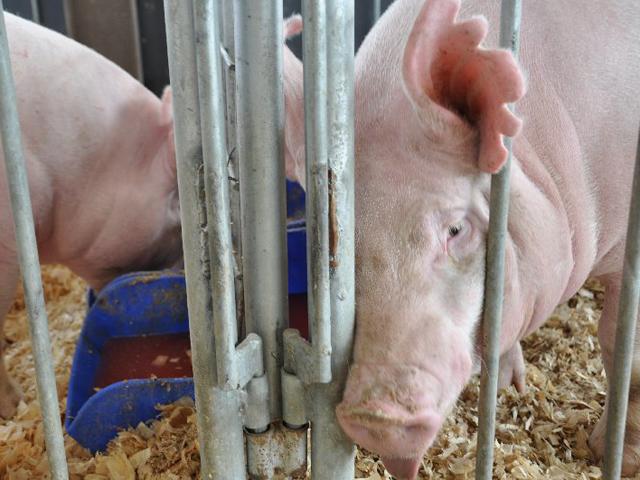Risks and Complication of Prop 12
Vilsack Sees 'Chaos in the Marketplace' as Repercussion Over California's Prop 12
OMAHA (DTN) -- Agriculture Secretary Tom Vilsack told Congress on Wednesday that agricultural producers are going to face "chaos in the marketplace" if Congress doesn't address the impact of the U.S. Supreme Court ruling over California's Proposition 12 in 2022.
There also could be trade ramifications from Canadians as the rules from California's proposition begin to affect how pigs are raised by Canadian farmers who then ship those pigs to U.S. finishing farms.
The secretary has increasingly become more vocal over the impacts of California's law, which was upheld by the U.S. Supreme Court last May. The court's ruling right now appears to grant the ability of states to dictate farm production practices to farmers outside their state borders and ignore federal food-safety standards.
Vilsack had another marathon hearing before the House Agriculture Committee on Wednesday, testifying on an array of topics and the tone between the secretary and lawmakers also ranging from friendly to hostile.
Rep. Glenn "GT" Thompson, R-Pa., chairman of the committee, asked Vilsack about the economic harm of Proposition 12 going into effect, pointing to a USDA study showing prices for certain pork products have risen as much as 41%.
Vilsack pointed out that "chaos" can be created when each state had the ability to define for itself what farming techniques or practices are appropriate.
"I'm not sure that this Congress is going to be able to pass legislation, but in due respect, I would suggest that if we don't take this seriously, we're going to have chaos in the marketplace. That's because there's nothing preventing any state from doing what California did."
P[L1] D[0x0] M[300x250] OOP[F] ADUNIT[] T[]
Proposition 12 makes it a criminal offense and civil violation to sell whole pork meat in California unless the pig it comes from is born to a sow that was housed within 24 square feet of space and in conditions that allow the sow to turn around without touching an enclosure. Prop 12 applies to any uncooked pork sold in the state, regardless of whether it was raised in California.
Yet, California also is 12% to 15% of the national pork market. Beyond California, the state of Massachusetts also has its own law on animal pen size. The Massachusetts law is being challenged after a federal court last week overturned an exemption in the Massachusetts law for pork products that come from federally licensed facilities within the state.
Vilsack acknowledged the difficulty now trying to create some consistency in rules. The problem, he added, is that applying national standards on food leads to considering national standards for other thorny social issues such as guns and abortion. "So, I don't envy the Congress in trying to figure this out. I will tell you, though, that if it doesn't figure it out, there's going to be chaos."
Thompson said producers who were prepared to go into the California market with its tighter standards aren't finding the volume of expected sales. Those producers instead are shipping products to other states and disrupting the market for other smaller pork producers in the process. "So, there are a lot of implications."
Rep. Randy Feenstra, R-Iowa, said he was recently at an event with Iowa pork producers. He asked Vilsack about how Proposition 12 affects imports from Canada.
"It's been raised in our conversations with the Canadian minister," Vilsack said.
"They want to have some clarity and some indication of how we are responding to all of this."
With pork producers facing tighter margins, Vilsack said USDA has recently spent $100 million buying pork for its various feeding programs such as school lunches.
"I think we're going to go through a bumpy period here of whether farmers are going to participate in that market or whether they are going to localize," the secretary added.
While Vilsack advocated for Congress to change the law, more than 180 House members last fall joined a letter opposing a bill that would nullify Proposition 12.
House Agriculture Committee hearing: https://agriculture.house.gov/…
Also see, "Judge to Consider Whether Federal Law Preempts Animal Welfare Law in Massachusetts,"
Chris Clayton can be reached at Chris.Clayton@dtn.com
Follow him on X, formerly known as Twitter, @ChrisClaytonDTN
(c) Copyright 2024 DTN, LLC. All rights reserved.






